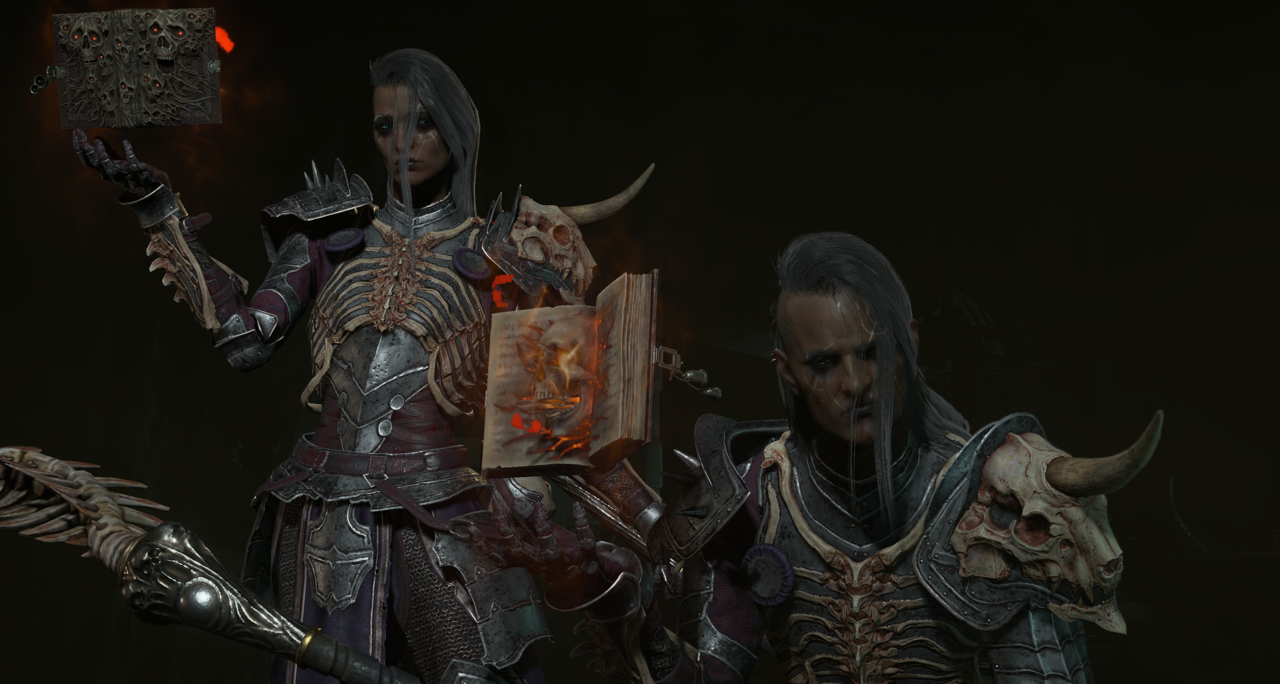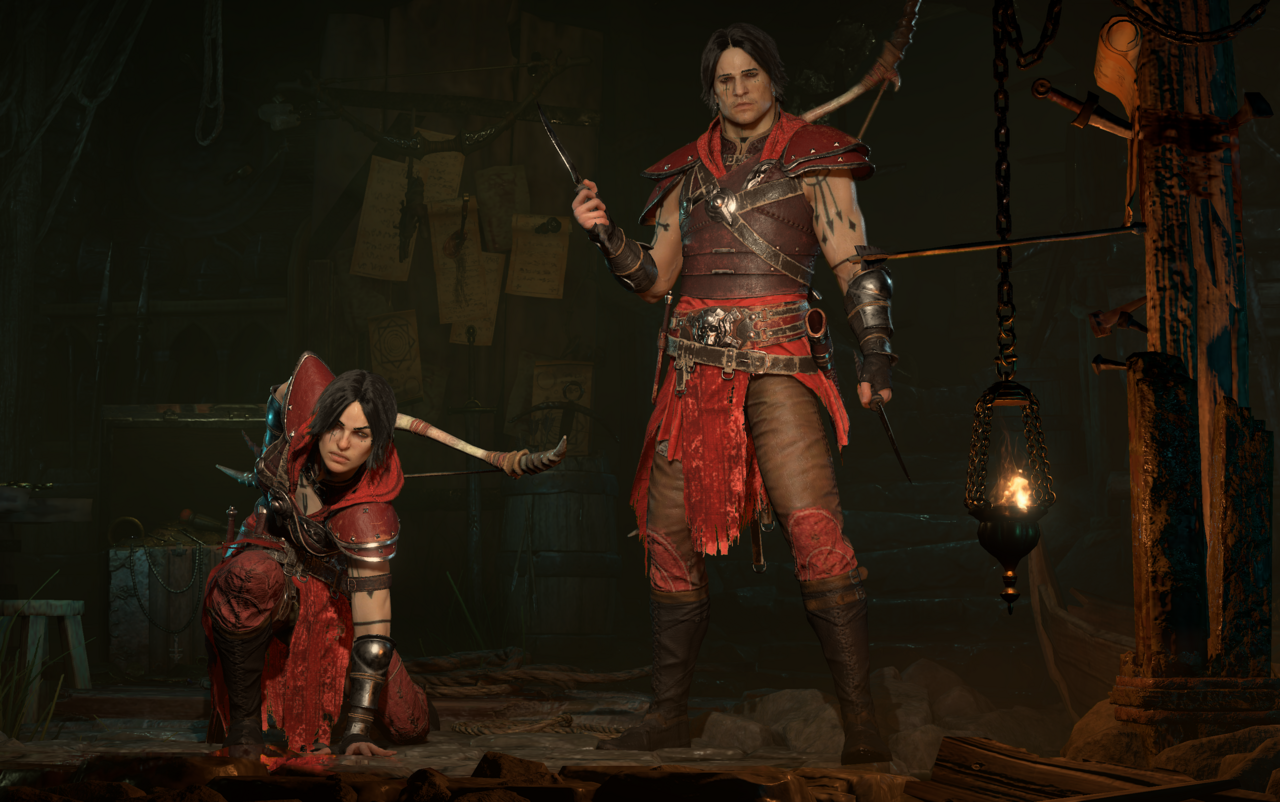Diablo 4 has finally arrived, tasking you with defeating Lilith and the forces of Hell. At launch, Diablo 4 has five classes to pick from, with each class having its own unique pros and cons. While seasoned Diablo veterans will likely already know which class they are rolling with first, new players might be unsure which one will give them the best experience.
Here are the pros and cons for each class and which ones will be the easiest to master. The classes are ranked from most newcomer-friendly to least, all according to an experience set to World Tier 1 difficulty, the game’s beginner-friendly mode.
Pros and cons of each class in Diablo 4
Necromancer

The Necromancer is a fan-favorite class in Diablo and there is a reason for it. The Necromancer is both the most powerful damage-focused class and fairly simple. This class focuses on creating minions from dead enemies and can even use dead enemies’ bones to attack foes. They can also have the ability to make corpses explode, making them more powerful as more enemies die around them.
The biggest benefits of the Necromancer class are the Minions and the Book of the Dead, which allow you to pick from a variety of different minions, unlocking more as you level up. Having an extra set of hands on the battlefield is a big boon to newcomers, making it feel like you have extra help, even if you are playing alone.
As for the downsides of the Necromancer, the main issue new players will find with this class–and the other damage-focused classes–is how squishy you can be, especially if you are playing alone. You will need to learn to keep your distance and focus on enemies getting too close to you, otherwise you might find yourself dying frequently, especially on higher World Tiers.
Sorcerer

The Sorcerer comes in just under the Necromancer in terms of approachability, only missing slightly due to it not being as much of a powerhouse as the Necromancer. While the Sorcerer deals a bit less damage, the skills are far easier to understand; the system of regenerating mana for more powerful attacks is fairly simple. Sorcerer’s can harness the power of the elements to deal a ton of damage to enemies in large areas, with skills that focus on ice, fire, lightning, and more.
The Sorcerer does have some abilities that provide them with extra defense in the middle of combat, but they have limited mobility compared to the other classes and the health pool isn’t as deep. Luckily, the majority of attacks are ranged and you can deal damage to many enemies at the same time, so you won’t find yourself getting overwhelmed by large groups too often. The Enhancement system for Sorcerer is also fairly simple, providing powerful passive bonuses depending on which skills you currently have equipped.
Druid

The Druid functions as a hybrid class, with high-damage magic abilities and wild beast forms that can tank more damage than some of the other classes. During the beta for Diablo 4, there were complaints that the Druid wasn’t as offensively capable as the other classes, but a build focused on area-of-effect attacks and defensive buffs can create a capable damage dealer that won’t go down as quickly as some of the squishier classes.
The Druid’s main fault is how cooldown-heavy the class can be, with you needing to bide time and take some damage between large attacks. Even with the ability to switch to different animal forms, which let you shred enemies at close range, you might spend a decent amount of time waiting for cooldowns to end. However, being able to have both defensive abilities and powerful attacks makes Druid a nice, middling class for newbies.
Rogue

The Rogue is easily the least newcomer-friendly class in Diablo 4 from a mechanical sense, due to this class’s focus on dealing large amounts of damage to single targets and using buffs and debuffs to your advantage. The Rogue uses a mixture of melee attacks and ranged attacks, many of which inflict debuffs like vulnerable. After making an enemy vulnerable, they take additional damage. To maximize this class you will need to focus on activating debuffs on enemies before using your bigger damage abilities.
The Rogue also has to take advantage of the Imbuement system, which lets you imbue some abilities with either poison, ice, or shadow. Imbuement only affects the next two abilities used, so you have to know which combos you are going to use ahead of time before activating it. The Rogue’s special system is the Specializations, which provides special bonuses and buffs, assuming you do whatever the requirements are of each Specialization. You will need to build your skills around each different kind, making it one of the more complicated characters to build.
The Rogue’s biggest flaw is that it’s the class that struggles with large groups the most. There are plenty of abilities that deal damage in a large area, but your primary attacks are all single target focused. You will need to dash and roll around the battlefield to keep from getting surrounded. Rogue’s have very high damage potential, but it takes more game knowledge than new players might have for their first character.
Barbarian

The Barbarian is the main tank-focused class, using a vast arsenal of melee weapons to slice and bash enemies at close range. Barbarians have the special ability to rotate through different weapon types using the Weapon Arsenal mechanic, with different Barbarian skills available to use depending on the weapons currently equipped. While rotating through different weapon types might sound a bit difficult, it’s fairly easy to grasp, especially since you will slowly unlock new abilities as you level up.
The most newcomer-friendly part about the Barbarian is that it’s the tank class, making it much easier to survive massive amounts of damage. The trade-off is that you don’t deal as much damage as the other classes, but if you’re new to Diablo and playing alone, you will be grateful for the larger health pool. You can pick skills, like Bleed abilities, to get more damage out of the Barbarian. The reason the Barbarian falls at the bottom of the list is that it can be very difficult to take down bosses and some of the tougher enemies alone, due to the lower damage output and the need to get in close to deal damage. This shouldn’t put anyone off from trying it, but you might find yourself unhappy with how long it takes to kill enemies.
Check out GameSpot’s Diablo 4 Guides Hub for more information about the five classes and other important aspects of Sanctuary.
The products discussed here were independently chosen by our editors.
GameSpot may get a share of the revenue if you buy anything featured on our site.

